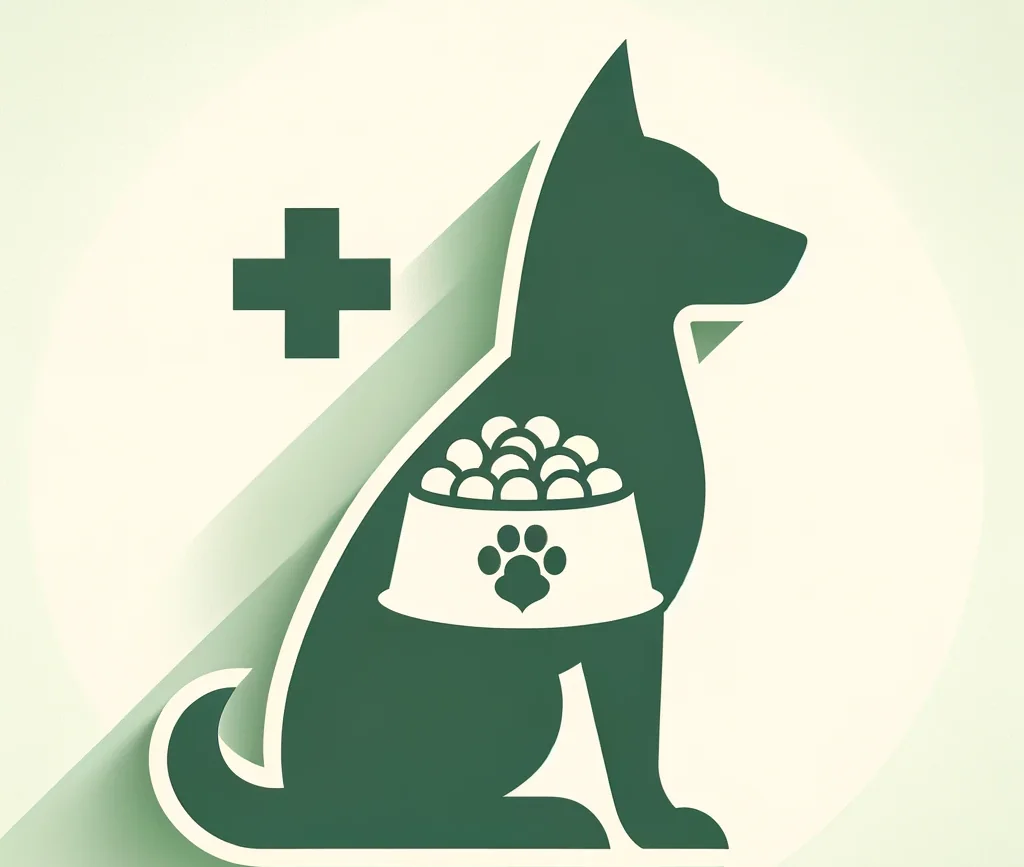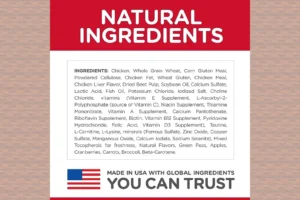Sniffles and itches shouldn’t come between your pup and their dinner bowl. Managing a dog’s food allergies can feel like a guessing game where the rules are always changing.
In this post, you’ll get practical advice on navigating the world of canine food sensitivities and making mealtime a happy, itch-free occasion again.
Key takeaways:
- Identify common dog food allergens – beef, dairy, wheat – and switch to novel proteins or carbohydrates as part of an elimination diet.
- Introduce a high-quality probiotic to support your dog’s gut health and potentially reduce food allergy symptoms.
- Consult with your vet for a tailored approach and consider hypoallergenic or prescription diets to ensure proper nutrient balance without triggers.
What Are the Signs of Food Allergies in Dogs?
If your pooch is constantly scratching, showing signs of a troubled tummy, or frequently shaking their head due to ear issues, it might be time to consider food allergies. Food allergies can be a real pain for our furry friends, causing them discomfort and, at times, leading to more severe health issues. But what should you be on the lookout for?
Here are some red flags that your dog might be waving at you:
- Non-stop Scratching: If your dog is scratching like there’s no tomorrow, it’s a sign something’s not right.
- Digestive Drama: Chronic vomiting or diarrhea can signal that their body is rejecting the food they’re eating.
- Ear Aggravation: Recurring ear infections with a side of head-shaking are common symptoms in allergic pups.
- Coat Conundrums: Unexplained loss of fur or a dull coat could also point to dietary issues.
Catching these symptoms early can save both you and your dog a heap of trouble down the line. It’s crucial to remember that these signs could hint at other health issues, too. When in doubt, check it out! A visit to the vet can set your mind at ease and start your dog on the path to relief.
Is It an Allergy or Intolerance?
Understanding the difference between a food allergy and an intolerance is crucial for finding the right solution. Here’s the lowdown:
- Food Allergy: This is an immune system response where the body mistakenly identifies a certain food as a threat and goes on the defensive, which can lead to skin and coat issues, itching, and ear infections.
- Food Intolerance: It’s more about the digestive system being unable to handle a specific food, leading to gastrointestinal symptoms, like upset stomach and diarrhea.
Why does this matter? Because treatment for an allergy may be different from how you’d handle an intolerance. It’s all about tailoring the approach to your dog’s unique situation. To get the full picture, you’ll need a professional diagnosis from your vet. They might suggest allergy tests or embark on an elimination diet (more on that shortly) to nip those nasty reactions in the bud.
How Can You Pinpoint the Culprit?
Finding the snack that’s causing the backlash isn’t always a walk in the park. But with an elimination diet, you can single out the ingredient that’s stirring up trouble. Here’s a step-by-step guide to put you on the path of discovery:
- Consult Your Vet: Before you change up your dog’s diet, touch base with your vet. They’re the GPS for this journey.
- Simplify the Menu: Start by feeding your dog a diet that cuts out common offenders (like beef, dairy, wheat) and introduce a novel protein or carbohydrate source they’ve never had before.
- Keep It Consistent: For six to eight weeks, stick to the new menu. No cheating with treats or table scraps!
- Reintroduce Gradually: Once symptoms improve, gradually bring back old foods one at a time to see which one triggers a reaction.
Patience is your best pal during this process. Keep a close eye on your pooch for any changes and work closely with your vet.
Here’s a tidbit many folks miss: The power of probiotics. They aren’t just good for the human gut, but they can also be a game-changer for your dog, especially when dealing with allergies and intolerances. Incorporating a high-quality probiotic can help strengthen your dog’s gut health, potentially reducing allergic reactions and aiding in the digestion of their food.
Remember, the end of this detective work is merely the beginning of your dog’s journey to a happier, healthier life. Keep following their tail-wagging lead, and you’ll both be well on your way to managing those pesky food allergies with the perfect diet. Stay tuned for more insights on how to give your dog the best care possible!
For more information on the importance of probiotics in managing canine allergies, check out the American Kennel Club’s article on the topic.
What Ingredients Should You Avoid?
When your pooch starts scratching incessantly or suffers from gastric woes, dog food allergies might be the culprits lurking behind those puppy dog eyes. A great first step is to steer clear of common allergens in dog food. Just like us, canines can react to:
- Beef
- Dairy products
- Chicken
- Eggs
- Soy
- Wheat
It’s a must to become a label detective. Some ingredients might be listed under unfamiliar names—gluten, for example, can pop up as ‘triticale’ or ‘seitan.’ Understanding these alternative names can be the key to unlocking your furry friend’s comfort.
It’s a nifty trick to remember that some foods might cross-react. If your dog is allergic to beef, they might also have a reaction to other red meats. Keep that in mind, and when in doubt, a good old chat with your vet might shed some light.
Can Probiotics and Supplements Help?
Probiotics are more than a wellness trend; they are live bacteria that can have a pawsitive impact on your dog’s gut health. But can they tackle allergies? Absolutely. Probiotics help forge a strong gut barrier and can keep the immune system on its toes, both of which are crucial in managing food allergies.
Moreover, omega-3 fatty acids, found in fish oil, are celebrated for their anti-inflammatory properties, and they can be a godsend for dogs with allergies. Similarly, a dollop of antioxidant-rich supplements like Vitamin E could support skin health, making your pooch’s life a little less itchy.
Now here’s a unique nugget you might not find often: when it comes to managing dog food allergies, it’s not just what you add, but what you don’t. Ensuring that your pup’s supplements are free from artificial colors, flavors, or excess fillers will keep their diet as clean as a hound’s tooth, reducing the risk of unwanted reactions.
What Are Safe and Nutritious Alternatives?
Hypoallergenic diets are the VIP lounges of doggy dining—exclusive and tailored. They often feature novel proteins—that’s fancy talk for meats that your dog hasn’t eaten before. Kangaroo, venison, or duck could be their next favorite dish! Also, take a look at prescription diets formulated to fly under the radar of your dog’s immune system.
A trend that’s picking up steam is the homemade meal. But remember, it’s not as simple as serving up Sunday’s leftovers. Crafting a balanced diet with a veterinary nutritionist’s guidance means your fur baby gets their nutrients without the allergens.
Here goes a scoop that’s worth its weight in kibble: while most pups do well on a novel protein diet, a deep dive into the proteins’ origin can be a game-changer. Opting for a protein that’s not only new but also sourced from a different environment—like wild-caught fish if your dog has only had farm-raised—can further reduce the chance of allergies.
When changing your dog’s diet, take it slowly. Introduce new food gradually and watch for changes. And remember, the ingredient list is your treasure map to a happy, healthy dog, so read it like you’re hunting for hidden gold.
In summary , managing your dog’s food allergies through diet boils down to vigilance and creativity. Avoiding known allergens, incorporating supportive supplements, and experimenting with novel, nutritious alternatives will have your canine companion feeling top dog in no time. Keep an open mind, work closely with professionals, and your furry friend’s tail will be wagging with wellness.
Alex, a passionate animal lover, has experience in training and understanding animal behavior. As a proud pet parent to two dogs and three cats, he founded AnimalReport.net to share insights from animal experts and expand his knowledge of the animal kingdom.





